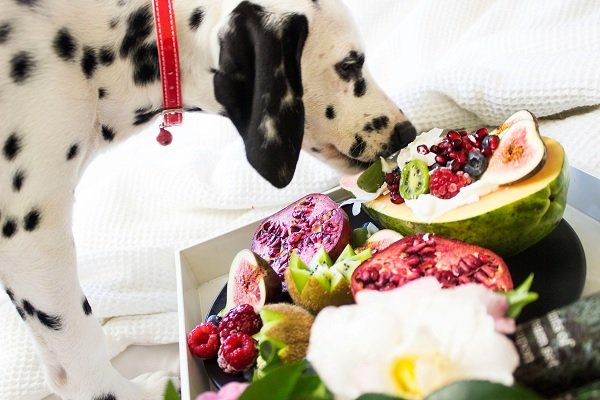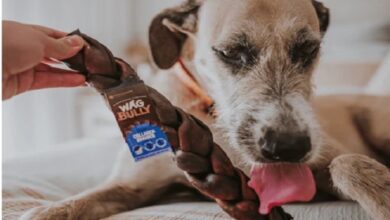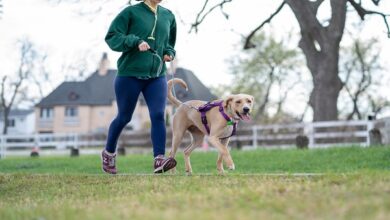8 Surprising Foods That Are Dangerous for Dogs

Dogs are naturally curious and often find themselves tasting things they shouldn’t. Certain dog breeds such as Huskies, Beagles and Labrador Retrievers are especially known to rummage through kitchen scraps or steal something from your table. While many owners know about the dangers of chocolate and grapes, there are lesser-known foods that pose significant risks. This article delves into some surprising foods that can harm dogs, explaining their dangers and the symptoms to watch for if your dog consumes them.
1. Avocado
Though avocados are a popular and healthy choice for humans, they can spell trouble for dogs. The fruit harbours a substance called persin, which can induce vomiting and diarrhoea in dogs. The highest levels of persin reside in the skin, leaves, and pit of the avocado. Moreover, the pit itself can choke or obstruct a dog’s digestive tract.
Symptoms of Avocado Poisoning in Dogs:
- Vomiting
- Diarrhoea
- Abdominal pain
2. Macadamia Nuts
Macadamia nuts, often hidden in baked goods and snacks, can be toxic to dogs. Even a small quantity can trigger severe health issues. The exact toxin in macadamia nuts remains a mystery, but the effects include weakness, vomiting, and elevated body temperature.
Symptoms of Macadamia Nut Poisoning in Dogs:
- Weakness or difficulty walking
- Vomiting
- Tremors
- Hyperthermia
3. Xylitol
Xylitol, a common sugar substitute found in sugar-free products like gum, candy, and some peanut butters, can be deadly for dogs. It prompts a rapid release of insulin, causing a dangerous drop in blood sugar levels. Additionally, it can lead to liver failure.
Symptoms of Xylitol Poisoning in Dogs:
- Vomiting
- Loss of coordination
- Seizures
- Lethargy
4. Garlic and Onions
Garlic and onions, whether raw, cooked, or powdered, contain compounds that can obliterate a dog’s red blood cells, causing anaemia. Even small doses can be harmful, and symptoms may not manifest immediately.
Symptoms of Garlic and Onion Poisoning in Dogs:
- Weakness
- Vomiting
- Shortness of breath
- Pale gums
5. Yeast Dough
Raw yeast dough can pose a significant threat to dogs. As the dough expands, it can cause bloating and discomfort. The fermentation process produces alcohol, leading to alcohol poisoning.
Symptoms of Yeast Dough Ingestion in Dogs:
- Bloating
- Vomiting
- Disorientation
- Breathing difficulties
6. Grapes and Raisins
Grapes and raisins can precipitate acute kidney failure in dogs. The toxic substance remains unknown, but even small amounts can be dangerous. Symptoms include vomiting, lethargy, and loss of appetite.
Symptoms of Grape and Raisin Poisoning in Dogs:
- Vomiting
- Diarrhoea
- Abdominal pain
- Increased thirst and urination
7. Alcohol
Though it may seem obvious, alcohol is highly toxic to dogs. Even small amounts can cause serious health problems, including central nervous system depression, respiratory issues, and death.
Symptoms of Alcohol Poisoning in Dogs:
- Vomiting
- Lack of coordination
- Drowsiness
- Slow breathing
8. Caffeine
Caffeine, found in coffee, tea, chocolate, and energy drinks, acts as a potent stimulant that can harm dogs. It affects their heart and nervous system, causing symptoms like restlessness, rapid breathing, and heart palpitations.
Symptoms of Caffeine Poisoning in Dogs:
- Restlessness
- Rapid breathing
- Tremors
- Heart palpitations
What to Do If Your Dog Consumes a Harmful Food
If you suspect your dog has consumed any of these foods, immediate action is crucial. Contact your veterinarian or an emergency animal clinic. Providing specific information about the ingested food and the quantity can assist the vet in evaluating the situation and determining the best response.
Conclusion
While keeping an eye on what your dog eats can be challenging, knowing the surprising foods that pose risks is vital. Keeping these items out of reach and educating those around you about the dangers can prevent accidental ingestion. Always consult with a veterinarian if you’re concerned about your dog’s diet or notice signs of food poisoning. A well-informed pet owner is the best defence against potential hazards lurking in the kitchen.





